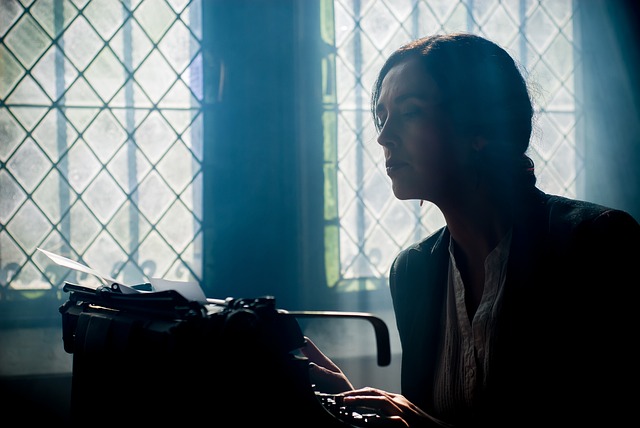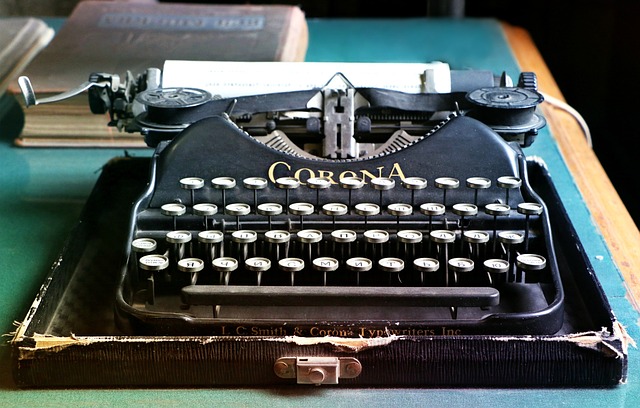Written by 
PulsePost
Unlocking Creativity: How AI Writer Is Revolutionizing Content Creation
The advent of AI technology has had a profound impact on various industries, with content creation being one of the most notably affected. Among the plethora of AI-powered applications, AI writers have emerged as a revolutionary tool, reshaping the way content is generated and consumed. Leveraging the capabilities of natural language processing and machine learning, AI writers have significantly transformed the landscape of content creation. In this article, we delve into the influence of AI writers on creativity, the implications for the industry, and the intersection of AI and human creativity. Let's explore how AI writer is reshaping the content creation process and its impact on creativity and uniqueness.
What is AI Writer?

AI writer, also known as AI blogging or pulsepost, refers to the utilization of artificial intelligence technology and algorithms to generate written content without significant human intervention. These systems are designed to understand, interpret, and produce text-based content that closely resembles the natural language used by humans. AI writers utilize various techniques such as natural language generation (NLG) to create coherent and contextually relevant written material tailored to specific requirements. The deployment of AI writers has gained widespread attention in the content creation domain due to its potential to streamline and enhance the writing process while also raising pertinent questions about the impact on human creativity and originality. The integration of AI writer tools such as PulsePost has been a topic of significant interest in the SEO community, as it promises to revolutionize content creation and delivery.
Why is AI Writer Important?
The importance of AI writer lies in its ability to augment productivity, streamline content generation, and offer significant assistance to content creators across various industries. Its impact on the quality, quantity, and relevance of created content cannot be overstated. AI writer tools provide a means to expedite the content creation process, allowing creators to focus on higher-level strategic tasks while harnessing the power of AI for structured content generation. Furthermore, the utilization of AI writer technology offers new dimensions to explore when it comes to content generation, potentially leading to the discovery of unique insights, perspectives, and narrative styles that may not have been readily attainable through traditional writing methods. However, the increasing reliance on AI writer tools also raises ethical questions and concerns related to the preservation of human creativity, originality, and the potential homogenization of content.
The impact of AI writer tools such as PulsePost extends beyond mere efficiency gains; it has the potential to alter the broader dynamics of creativity in the content creation process. By understanding the substantial influence of AI writer tools on creative output, we can comprehensively evaluate the implications and opportunities it presents for writers, businesses, and the content creation ecosystem as a whole. Let's explore the influence of AI writer on creativity in greater detail and understand the associated opportunities and challenges.
The Influence of AI Writer on Creativity

AI writer tools and platforms have been lauded for their potential to enhance the creative capabilities of writers and content creators. Studies and research have shown that AI-powered writing tools have the capacity to boost creativity, especially for individuals who may initially struggle with creative ideation and content development. While the use of AI for writing has been associated with a boost in individual creativity, it comes with an important caveat—that reliance on AI writer tools may compromise the diversity and originality of created content. A balance must be struck between leveraging AI to enhance creativity and ensuring the preservation of authentic and diverse creative outputs. Did you know that research has indicated that access to generative AI ideas can lead to stories being evaluated as more creative and well-written? However, the trade-off is the potential overall reduction in the variety of stories produced as a result of similarity induced by AI-generated ideas.
The impact of AI writer tools on creativity is a subject of significant interest and debate. While some views emphasize its potential to unlock creativity and complement human ingenuity, others express concerns about the potential commoditization and standardization of creative expression. This dichotomy underscores the nuanced influence of AI writers on creative output and warrants a comprehensive examination of the implications for writers, businesses, and the broader creative landscape. It is imperative to navigate the evolving intersection of AI and creativity in content creation, considering both its advantages and the challenges posed by its widespread integration.
The adoption of AI writer tools is associated with both opportunities and risks concerning creativity in content creation. The capacity of AI to provide guidance, generate ideas, and streamline the writing process has been viewed as a valuable asset by many content creators. However, it is essential to address the potential impact on the diversity, uniqueness, and subjective expression inherent in human-created content. The interplay of AI writer tools and creativity prompts critical discussions regarding the preservation of artistic originality, avoidance of content homogeneity, and the ethical considerations surrounding the use of AI in creative endeavors. As AI writer tools continue to advance, it becomes increasingly important to recognize and address their implications for the creative landscape.
While AI tools can undoubtedly provide valuable support and catalyze the ideation process, their influence on creativity in content creation necessitates careful examination and thoughtful considerations. The evolution of AI and its integration into the content creation process has significant potential to shape the future of creative expression, requiring a comprehensive assessment of its benefits, limitations, and ethical dimensions. This dynamic landscape presents a compelling opportunity to reflect on the equilibrium between AI-driven innovation and the preservation of human creativity in content creation. Let's explore the broader implications of AI writer tools on the industry and delve into the challenges and prospects it presents for creative expression and content uniqueness.
Implications for the Industry
The integration of AI writer tools has noteworthy implications for the content creation industry. From enhancing productivity and facilitating streamlined content generation to raising pertinent ethical and creative considerations, AI writer tools have ushered in a transformative era for content creators and businesses. The implications of AI writer tools extend beyond mere operational efficiency and delve into the underlying dimensions of creativity, innovation, and the nature of content itself. This transformation prompts a reevaluation of conventional approaches to content creation and necessitates a nuanced understanding of the interplay between AI technology and human creativity. By comprehensively exploring the implications of AI writer tools, businesses and content creators can gain valuable insights into how to navigate the evolving content creation landscape while maintaining a symbiotic relationship between AI and human creativity.
The adoption of AI writer tools such as PulsePost also necessitates a recalibration of existing content strategies and creative processes. The interplay between technology and creativity requires content creators and businesses to adapt their approaches and frameworks to effectively harness the potential of AI in content creation while safeguarding the integrity of creative expression. Furthermore, the strategic integration of AI writer tools demands a reevaluation of traditional benchmarks for originality, diversity, and subjective narratives within the content landscape. This reorientation inherently calls for innovative responses and adaptive strategies that leverage the capabilities of AI in a manner that preserves and enhances creativity rather than eclipsing it. By exploring the implications for the industry, businesses and content creators can navigate the transformative impact of AI writer tools on content creation in a meaningful and sustainable manner.
The Interplay of AI and Human Creativity

The integration of AI writer tools within the content creation landscape prompts a compelling exploration of the interplay between AI and human creativity. This interplay represents a dynamic and complex relationship that encapsulates the collaborative, transformative, and at times, the contentious intersection of AI and human creative expression. The utilization of AI writer tools has challenged the traditional boundaries of creative expression, prompting a comprehensive reevaluation of the characteristics, nuances, and ethical dimensions of content creation. By navigating the interplay of AI and human creativity, content creators and businesses can leverage the strengths of AI to amplify creative expression while upholding the intrinsic values of originality, diversity, and subjective storytelling. The harmonious coexistence of AI and human creativity offers a fertile ground for innovation, experimentation, and the redefinition of content creation paradigms in the digital age.
Frequently Asked Questions

Q: How does AI affect creative writing?
A growing number of authors are viewing AI as a collaborative ally in the storytelling journey. AI can propose creative alternatives, refine sentence structures, and even assist in breaking through creative blocks, thus enabling writers to concentrate on the intricate elements of their craft. (Source: wpseoai.com/blog/ai-and-creative-writing ↗)
Q: How does AI influence creativity?
Such application of AI tools can augment human creativity not by providing ideas, but strengthening the process by which human ideas are developed and built into tangible outcomes. (Source: sciencedirect.com/science/article/pii/S2713374524000050 ↗)
Q: How AI is impacting the creative industry?
AI is injected into the appropriate part of creative workflows. We use it to speed up or create more options or create things we couldn't create before. For example, we can do 3D avatars now a thousand times faster than before, but that has certain considerations. We then don't have the 3D model at the end of it. (Source: superside.com/blog/ai-in-creative-industries ↗)
Q: Will AI replace creative writers?
Summary: Will AI Replace Writers? You might still be worried that AI will continue to get better and better as time goes on, but the truth is that it will likely never be able to replicate human creation processes exactly. AI is a useful tool in your arsenal, but it should not, and will not, replace you as a writer. (Source: knowadays.com/blog/will-ai-replace-writers ↗)
Q: How has AI impacted creativity?
and even outperforming (Source: knowledge.wharton.upenn.edu/article/ai-and-machine-creativity-how-artistic-production-is-changing ↗)
Q: What is a powerful quote about AI?
“A year spent in artificial intelligence is enough to make one believe in God.” “There is no reason and no way that a human mind can keep up with an artificial intelligence machine by 2035.” (Source: bernardmarr.com/28-best-quotes-about-artificial-intelligence ↗)
Q: How does AI affect artistic creation?
AI algorithms are capable of analysing and learning from existing artworks, enabling them to generate pieces that are both innovative and reflective of historical artistic trends. These advanced capabilities can serve as a new canvas for creative artistic expression. (Source: worldartdubai.com/revolutionising-creativity-ais-impact-on-the-art-world ↗)
Q: How is AI affecting creativity?
and even outperforming (Source: knowledge.wharton.upenn.edu/article/ai-and-machine-creativity-how-artistic-production-is-changing ↗)
Q: What are the statistics about the impact of AI?
Total economic impact of AI in the period to 2030 AI could contribute up to $15.7 trillion1 to the global economy in 2030, more than the current output of China and India combined. Of this, $6.6 trillion is likely to come from increased productivity and $9.1 trillion is likely to come from consumption-side effects. (Source: pwc.com/gx/en/issues/data-and-analytics/publications/artificial-intelligence-study.html ↗)
Q: How is AI impacting the creative industry?
AI is injected into the appropriate part of creative workflows. We use it to speed up or create more options or create things we couldn't create before. For example, we can do 3D avatars now a thousand times faster than before, but that has certain considerations. We then don't have the 3D model at the end of it. (Source: superside.com/blog/ai-in-creative-industries ↗)
Q: Is AI writer worth it?
You'll need to do a fair bit of editing before publishing any copy that will perform well in search engines. So, if you're looking for a tool to replace your writing efforts entirely, this is not it. If you're looking for a tool to cut down on manual work and research while writing content, then AI-Writer is a winner. (Source: contentellect.com/ai-writer-review ↗)
Q: Is AI a threat to novelists?
The Real AI Threat for Writers: Discovery Bias. Which brings us to a largely unforeseen threat of AI that has received little attention. As valid as the concerns listed above are, the biggest impact of AI on authors in the long run will have less to do with how content is generated than how it is discovered. (Source: writersdigest.com/be-inspired/think-ai-is-bad-for-authors-the-worst-is-yet-to-come ↗)
Q: What are some artificial intelligence success stories?
Ai success stories
Sustainability – Wind Power Prediction.
Customer Service – BlueBot (KLM)
Customer Service – Netflix.
Customer Service – Albert Heijn.
Customer Service – Amazon Go.
Automotive – Autonomous vehicle technology.
Social Media – Text recognition.
Healthcare – Image recognition. (Source: computd.nl/8-interesting-ai-success-stories ↗)
Q: Will AI replace story writers?
AI can't replace writers, but it will soon do things no writer can do | Mashable. (Source: mashable.com/article/stephen-marche-ai-writers-replacement ↗)
Q: What is the new AI technology that can write essays?
Copy.ai is one of the best AI essay writers. This platform uses advanced AI to generate ideas, outlines, and complete essays based on minimal inputs. It's particularly good at crafting engaging introductions and conclusions. Benefit: Copy.ai stands out for its ability to generate creative content quickly. (Source: papertrue.com/blog/ai-essay-writers ↗)
Q: How does AI impact creativity?
AI can unlock greater creativity, inspiring new ideas that transcend traditional thinking. AI can boost creativity by blending data-based insights with new ideas. (Source: psychologytoday.com/us/blog/the-power-of-experience/202312/increase-your-creativity-with-artificial-intelligence ↗)
Q: How has AI impacted artists?
Identifying Art And Assessing Value Another benefit of AI in the art world is its ability to help automate market processes. Art collectors and investors are now able to assess the value of different artworks more accurately by using AI. (Source: forbes.com/sites/forbesbusinesscouncil/2024/02/02/the-impact-of-artificial-intelligence-on-the-art-world ↗)
Q: How does AI impact creative writing?
A growing number of authors are viewing AI as a collaborative ally in the storytelling journey. AI can propose creative alternatives, refine sentence structures, and even assist in breaking through creative blocks, thus enabling writers to concentrate on the intricate elements of their craft. (Source: wpseoai.com/blog/ai-and-creative-writing ↗)
Q: How has AI impacted writers?
AI also offers writers a unique opportunity to step out and above the average by understanding and leveraging the unique capabilities that humans can leverage over machine AI. AI is an enabler, not a replacement, for good writing. (Source: linkedin.com/pulse/how-does-ai-impact-fiction-writing-edem-gold-s15tf ↗)
Q: What are the legal implications of AI?
Bias in AI systems can lead to discriminatory outcomes, making it the biggest legal issue in the AI landscape. These unresolved legal issues expose businesses to potential intellectual property infringements, data breaches, biased decision-making, and ambiguous liability in AI-related incidents. (Source: walkme.com/blog/ai-legal-issues ↗)
Q: What are the legal issues with AI generated art?
AI art, one of the newest mediums for expression, is forbidden from copyright protection because it fails the human authorship requirement under current law. Despite several challenges to this, the Copyright Office holds fast—AI art lacks humanity. (Source: houstonlawreview.org/article/92132-what-is-an-author-copyright-authorship-of-ai-art-through-a-philosophical-lens ↗)
This post is also available in other languages
